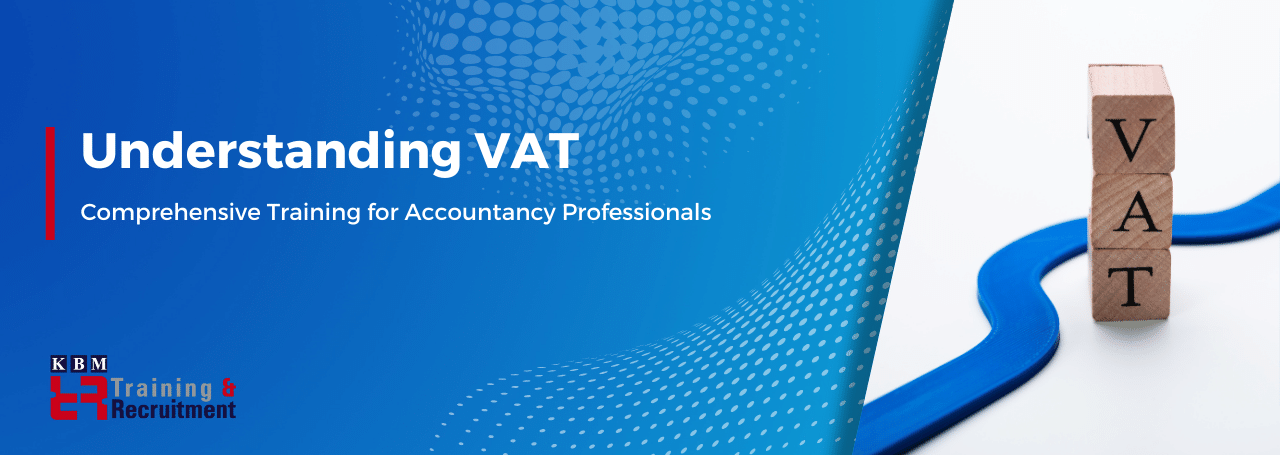Value-added Tax (VAT) plays a pivotal role in financial management and accounting. It's a complex yet crucial aspect of business operations, particularly for accountancy professionals managing tax compliance and financial reporting.
Introduction to VAT
Value-added Tax (VAT) is a consumption tax imposed on the added value of goods and services during each stage of production or distribution. It is a significant government revenue source implemented in over 160 countries and crucial to international business practices.
Key Concepts of VAT
Accountancy professionals need a solid understanding of crucial VAT concepts to manage tax obligations and ensure compliance effectively. These concepts include:
- Taxable Supplies: Identifying which goods and services are subject to VAT is crucial, as different items may be taxed at different rates or qualify for exemptions.
- Input Tax and Output Tax: Understanding the difference between input tax (VAT paid on purchases) and output tax (VAT charged on sales) is essential for calculating VAT liabilities or refunds.
- VAT Rates: Familiarity with standard VAT rates, reduced rates for specific goods or services, and zero-rated supplies is necessary for accurate tax calculations.
- VAT Registration Thresholds: Knowing the thresholds for VAT registration in different jurisdictions helps businesses determine when they need to register for VAT and comply with reporting requirements.
Compliance Requirements
Compliance with VAT regulations is critical to avoid penalties and maintain financial integrity. Accountancy professionals should be well-versed in the following compliance requirements:
- VAT Registration: Understanding the process and criteria for VAT registration is the first step in compliance. This includes assessing turnover thresholds, registration deadlines, and registration types (voluntary or mandatory).
- VAT Returns: Accountancy professionals must ensure accurate and timely filing of VAT returns, including reporting input and output tax, reconciling VAT liabilities, and claiming eligible VAT refunds.
- Record Keeping: Maintaining comprehensive records of VAT transactions, invoices, receipts, and relevant documentation is essential for audits, compliance checks, and tax assessments.
- VAT Payments: It is crucial to manage VAT payments, including understanding payment deadlines, payment methods, and penalties for late or incorrect payments, to avoid financial penalties.
Strategic Considerations for VAT Management
Beyond compliance, accountancy professionals play a strategic role in businesses' VAT management. Here are some strategic considerations:
- VAT Planning: Developing VAT planning strategies to minimise tax liabilities, optimise cash flow, and leverage VAT reliefs, exemptions, or incentives can lead to significant business cost savings.
- Cross-border Transactions: Managing VAT implications for cross-border transactions, including intra-EU trade, imports, exports, and international services, requires an understanding of VAT rules and regulations across jurisdictions.
- VAT Audits and Investigations: Preparing for VAT audits or investigations by tax authorities involves maintaining accurate records, implementing internal controls, and proactively addressing any compliance issues.
- Technology Integration: Leveraging VAT software, automation tools, and digital platforms can streamline VAT compliance, reporting, and data analysis, improving efficiency and accuracy.
Emerging Trends in VAT
The landscape of VAT is continuously evolving, with new trends and developments shaping tax policies and practices. Accountancy professionals should stay updated on emerging trends such as:
- Digital VAT: The digitalisation of tax systems, including digital VAT reporting, real-time invoicing, and electronic VAT filing, is becoming more prevalent, requiring accountancy professionals to adapt to digital platforms and technologies.
- VAT and E-commerce: The growth of e-commerce has implications for VAT, including rules for online sales, marketplace facilitation, VAT collection mechanisms, and cross-border e-commerce transactions.
- Environmental Taxes: Some jurisdictions are considering introducing environmental or carbon taxes within their VAT reforms, highlighting an increasing emphasis on sustainability and eco-friendly tax policies.
- VAT Fraud Prevention: Tax authorities are enhancing measures to prevent VAT fraud, including anti-fraud technologies, data analytics, and collaboration with businesses to detect and deter fraudulent activities.
Continuous Professional Development (CPD) in VAT
Accountancy professionals can enhance their VAT expertise through continuous professional development (CPD) programs, workshops, certifications, and industry seminars. CPD in VAT covers updates on legislative changes, case studies, best practices, and practical insights from tax experts, empowering professionals to navigate complex VAT scenarios effectively.
The Bottom Line
Understanding VAT is essential for accountancy professionals to fulfil their roles effectively, from ensuring compliance and strategic tax planning to adapting to emerging trends and technological advancements. Comprehensive training in VAT equips professionals with the knowledge, skills, and resources to explore the complexities of VAT management and contribute to businesses' financial success.






















